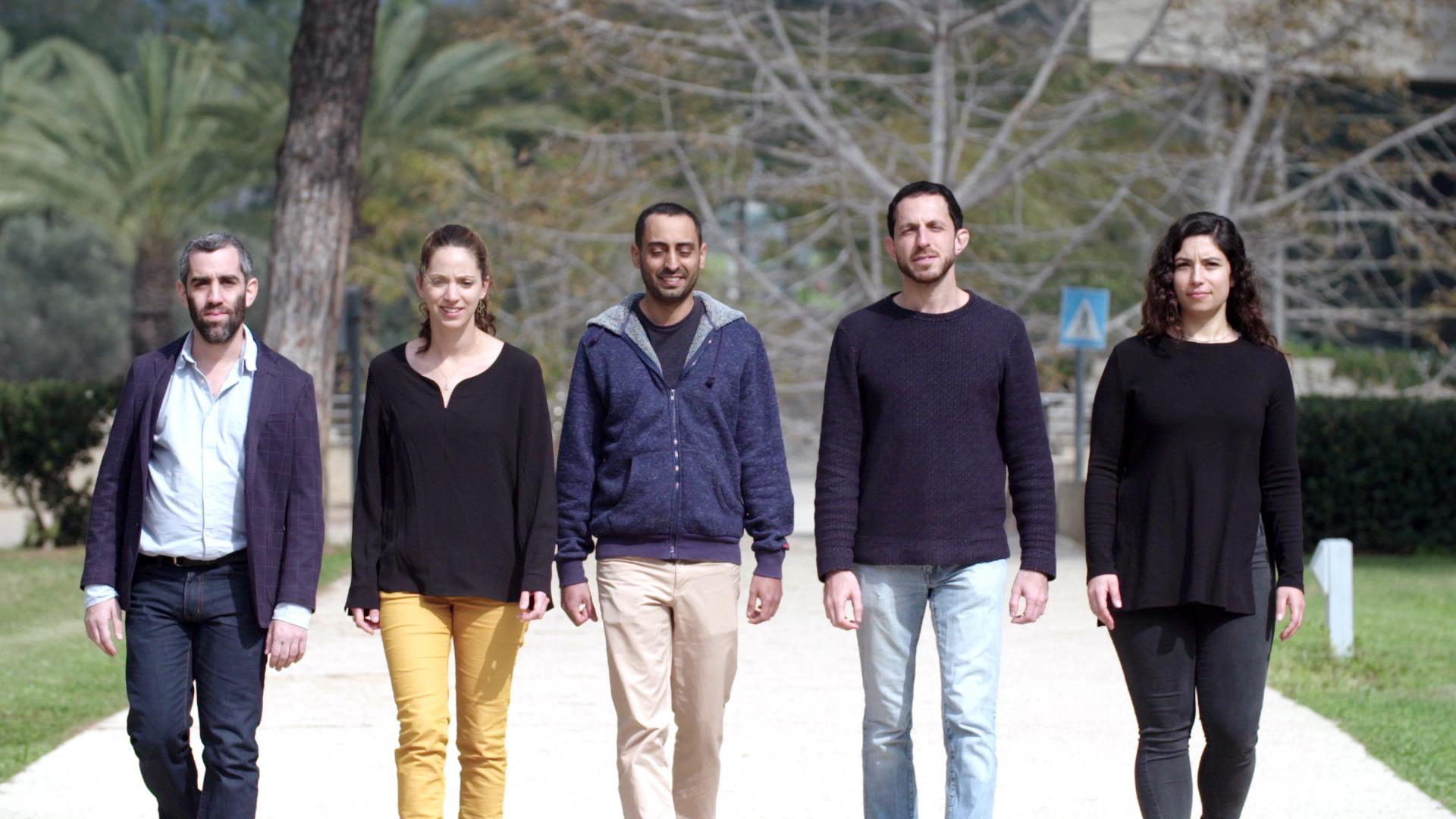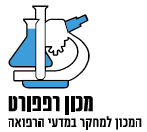
Nofar Veiga Yarden Golan Omer Basha Amir Giladi Niv Zmora
Nofar Veiga
Tel Aviv University, together with colleagues from Professor Dan Peer and Professor Itai Benhar labs, developed a personalized therapeutic platform, that enables a precise treatment in various diseases, such as cancer, inflammation, and various genetic disorders. Delivering therapeutic payload to specific target cells, thus increasing the efficiency and reducing adverse effects, is considered by many to be the holy grail of medical research. Moreover, genuinely personalized treatments will require the ability to target multiple cell types, in a combination which is tailored for individual patients. However, due to technological challenges, current approaches have to date tended to focus on a single-target cell. In her research, she overcame this significant limitation of current methodologies, by utilizing biological methods for directing drug-loaded nanoparticles to a specific target. During this research, she had demonstrated a novel therapeutic approach for autoimmune disorders through selective expression of anti-inflammatory proteins in immune cells and thus an immunomodulation effect. Altogether, this study opens new avenues in cell-specific reprograming and ultimately might introduce new therapeutic modalities for inflammatory diseases, malignancies, and rare genetic diseases. Such a selective, flexible and highly effective system for targeted therapeutics can serve as a milestone to make precision medicine more feasible.
Yarden Golan
From the Faculty of Biology, at the Technion, study the genetic disorder Transient neonatal zinc deficiency (TNZD; OMIM #608118) which appears only in exclusively breastfed infants as a result of low zinc concentration in the breast milk of their nursing mothers. Infants harboring TNZD have no impairment in intestinal zinc absorption and are completely cured after zinc supplementation of their breast milk and after weaning. TNZD is predominantly a result of loss of function mutations in the SLC30A2 gene. SLC30A2 encodes for the zinc transporter ZnT2 which is responsible for zinc transport into breast milk. Breast milk zinc concentrations vary largely within and between mothers at different stages of lactation. Therefore, it remains highly essential to develop a reliable, easy, rapid, and non-invasive tool for early diagnosis of TNZD. Towards this end, Yarden Golan developed a novel genetic approach for the early diagnosis of SLC30A2 mutations associated with TNZD using genetic analysis of mRNA isolated from breast milk cells. The genetic approach for the early diagnosis of TNZD cases is the first step towards the early genetic diagnosis of other genetic disorders which are associated with proteins that are expressed in mammary epithelial gland cells.
Omer Basha
Of Ben-Gurion University of the Negev has focused his doctoral thesis on revealing biological pathways between the variations in genes (genotype) to genetic disease traits (phenotype). Massive efforts are being invested worldwide in profiling genes, proteins, tissues and other contexts using a wide array of experimental approaches. These profiles provide a starting point for the identification of molecular pathways involved in health and disease. This wealth of experimental data calls for the development of integrative approaches that enable a deeper understanding of tissue or context-specific states. In his research Omer has developed several integrative approaches and tools to predict molecular pathways connecting a genotype to a phenotype, create context-sensitive cellular maps of physical interactions between proteins, evaluate whether protein interactions are tissue-specific or occur globally and determine how interactions are altered across tissues. These methods allow the identification of tissue- or context-specific processes and phenotypes from the enormous amounts of data available today. In the face of an increasing density of available data, tools like these, which provide a sparse and context-sensitive view into the function of human cells, are becoming ever more important in applied research of human phenotypes and diseases.
Amir Giladi
Develops experimental and computational tools to study the immune system at single cell resolution. The immune system has a fundamental role in the normal development of the organism, in fending off foreign invaders, and in determining the course of many diseases, including diabetes, Alzheimer’s disease and cancer. The immune system is composed of a wide variety of specialized cells, such that characterizing their molecular profiles, and understanding their spatial organization and inter-cellular communication are key to diagnosing immune processes and developing drugs that can successfully harness these processes for therapeutic purposes.
Collaborating with researchers from Prof. Ido Amit’s lab, from Israel and abroad, Amir developed and improved novel technologies that enable the comprehensive collection of information regarding the activity of tens of thousands of immune cells in their natural tissue environment. This information includes each cell’s gene expression profile, its relative location in the tissue, the regulatory mechanisms it operates and the signals it sends and receives from neighboring cells. Applying advanced statistical tools, Amir identified complex cellular organizations and characterized important developmental processes, from the differentiation of blood and immune cells in the bone marrow, to the formation of the immune niche during embryonic lung development. Additionally, he showed how blocking a rare cell type or perturbing a specific regulatory pathway can disrupt the system’s performance and cause tissue damage and pathogenicity.
Nowadays, his research allows precise measurements of the immune system in different pathologies, and in the future, these findings will lead toward better diagnostics and the development of personalized treatments.
Niv Zmora
A physician practicing internal medicine in the Tel Aviv Sourasky Medical Center, is on a PhD track at Professor Eran Elinav’s lab, in the Weizmann Institute of Science. In his research he focuses on the interactions between humans and their resident bacteria (collectively termed the ‘microbiome’), and on the mechanisms by which disruption in their composition or function may trigger or exacerbate various medical conditions, such as inflammation and metabolic diseases. He studied interventions intended to harness the microbiome in order to promote health by manipulating the gut bacteria. His research has elucidated the limitations in the currently available probiotic therapy, and uncovered previously unappreciated effects of probiotics administration. In addition, he delineated how the microbiome composition can serve as a diagnostic and prognostic biomarker, and how it can be utilised to devise personally-tailored diets that maintain blood glycemic control.



